Home ➔ How to Write an Essay ➔ Familiar Essay

Familiar Essay Guide
The world of essays is as vast as the ocean and as varied as the multitude of fish that inhabit its depths. Among the different species of essays, one often overlooks the humble yet captivating, ‘familiar essay.’ Shrouded in simplicity yet marked by profound insight, this essay form deserves a closer look and deeper understanding.
Definition of a Familiar Essay
A familiar essay, as its name suggests, is a form of non-fiction writing that offers an intimate, conversational exploration of a topic. Unlike formal academic essays , where the goal is to make an objective, evidence-based argument, the familiar essay offers a comfortable space to meander through thoughts and feelings, observations and recollections, much like a friendly conversation.
The familiar essay creates a personal relationship between the writer and the reader, using a conversational tone and an informal style. This form celebrates exploring personal experiences, the mundane and the extraordinary, weaving them together to extract broader insights about life and human nature. The objective here isn’t so much to instruct as it is to engage and evoke, to generate a shared understanding and to foster a sense of camaraderie between the writer and the reader.
The Characteristics of a Familiar Essay
What makes an essay ‘familiar’?
The familiar essay might be perceived as the casual counterpart of its more formal siblings in the realm of essay writing. However, it possesses its own unique characteristics that grant it a distinguished place in literature.
- Informal style: The familiar essay thrives on the element of informality. It is conversational, reminiscent of a friendly chat over a cup of coffee. This style allows a closer connection between the writer and the reader, fostering a relationship characterized by mutual understanding and companionship rather than the traditional didactic dynamic.
- Personal perspective: The familiar essay is marked by its subjective and personal viewpoint. It is less about objective arguments and more about personal reflections, observations, and insights. The writer’s voice is not only present but is central to the narrative, inviting the reader into their world of thoughts and experiences.
- Exploration of everyday life or personal experiences: The familiar essay often draws upon the writer’s everyday experiences, providing a fresh perspective on the mundane or ordinary. It embraces the philosophy of finding the extraordinary in the ordinary, probing the depths of everyday life to extract nuggets of wisdom and insight.
Comparison to other types of essays
In contrast to formal academic essays that argue a specific thesis with systematic reasoning and supporting evidence, the familiar essay is an exploratory journey where the endpoint is not a foregone conclusion but a discovery. The formal essay is a meticulously planned road trip with its map, milestones, and destination, while the familiar essay is a spontaneous hike through the woods, cherishing the beauty of the unexpected.
Unlike narrative essays that emphasize storytelling or descriptive essays that paint vivid pictures, the familiar essay combines these elements, using anecdotes and vivid imagery to enhance the personal exploration of a topic. It’s less about creating a dramatic arc or painting a detailed picture and more about a meditative stroll through thoughts and experiences.
Importance of the familiar essay in literature and education
The familiar essay holds a crucial place in literature for its unique approach to exploring ideas and fostering a bond with the reader. It brings a refreshing variation in style and perspective amidst more formal genres, embodying the spirit of personal exploration and conversation.
In education, the familiar essay serves as an effective tool to foster critical thinking, reflection, and personal expression among students. Decreasing rigid structures and formal language allows students to engage with their topics on a more personal and meaningful level. It encourages them to see the extraordinary within the ordinary, to develop their unique voice, and to create a meaningful connection with their readers. It’s not merely an exercise in writing; it’s a journey of self-discovery and shared understanding.
Stylistic Elements in a Familiar Essay
Language and tone.
The language and tone of a familiar essay significantly contribute to its effectiveness and appeal. As a writer, paying attention to these aspects is essential to write an engaging and relatable piece.
- How to keep language informal yet engaging: In a familiar essay, the language should mirror that of an intimate conversation with a close friend. It should be informal but not lax; relaxed but not sloppy. To keep it engaging, avoid jargon or overly complex language. Instead, use active voice, vivid descriptions, and a sprinkle of figurative language to create a conversational yet stimulating narrative. Remember, informality should not compromise clarity or precision.
- Balancing humor and seriousness: A familiar essay is like a well-brewed cup of coffee – a balance of bitter and sweet. While the conversational tone allows room for humor and wit, it should not overshadow the depth or significance of the topic. Too much humor may risk trivializing the subject, while an overly serious tone might make the essay ‘dry.’ Strive for a balance where humor acts as a catalyst, making the serious parts more digestible and impactful.
Use of Personal Anecdotes
Personal anecdotes are the lifeblood of a familiar essay. They bring color and life to abstract ideas, making them more tangible and relatable.
- Choosing relevant anecdotes: While it might be tempting to include any interesting anecdote, relevance is key. Your anecdotes should serve a purpose – illuminating your topic, highlighting your insights, or revealing your thought process. If an anecdote doesn’t contribute to these objectives, it might be best left out.
- Effectively integrating anecdotes into the essay: Anecdotes should flow seamlessly into your narrative, like threads woven into a fabric. They should not feel like abrupt interruptions or unnecessary detours. To effectively integrate them, use transitions that connect the anecdote to the main topic. After presenting the anecdote, interpret it, explain its significance, and relate it back to your central theme.
Creating Connections with the Reader
Creating a meaningful connection with the reader is a pivotal aspect of writing a familiar essay.
- Techniques for engaging the reader: To engage the reader, adopt a conversational tone and use direct address. Rhetorical questions can stimulate the reader’s thoughts and invite their participation in your intellectual journey. Also, remember to vary sentence structure and length to maintain rhythm and interest.
- Ways to make the reader relate to your experiences or thoughts: Universality is a potent tool for connection. While your experiences are personal, the emotions, insights, or dilemmas they evoke are often universal. Highlight these universal aspects to make your experiences resonate with the reader. Be honest and vulnerable because authenticity breeds connection. The more the reader sees their own experiences and thoughts mirrored in yours, the stronger the bond you will create.
Sample Familiar Essay
Title: “The Art of Waiting: An Exploration of Patience in Everyday Life”
At some point in our lives, we have all been acquainted with the peculiar state of being that I like to call ‘waiting.’ Oh, how well I know it, the twitch of the fingers, the rhythmic tap of the foot, the ticking of the clock that seems to get slower with each passing second. Waiting, in all its various forms, has been an integral part of my life – and I imagine, yours too.
What is it about waiting that we so despise? Why does it feel like a pointless intermission in the grand theatre of life? I’ve often contemplated these questions during my numerous rendezvous with waiting.
Let me take you back to a chilly winter morning a few years ago. The sky was painted with hues of gray, and the air was filled with an expectant silence, the kind that usually precedes a snowfall. There I was, waiting at the bus stop for my ride to work. The bus, much like an elusive lover, was running late, leaving me standing in the bone-chilling cold.
At that moment, frustration was my closest companion. Time, with its ceaseless ebb and flow, seemed to come to a standstill. I found myself spiraling into a pit of impatience, each second on my wristwatch echoing like a loud gong in the theater of my mind.
Just as I was about to surrender to the seemingly infinite loop of waiting, a sudden realization dawned on me. This disdain for waiting, I figured, was not born out of the act itself but rather our perception of it. We view waiting as a barren land, an empty space to be filled, a ‘nothing’ that stands between two ‘somethings.’ But what if, instead, we regarded it as an opportunity?
From that day on, I decided to approach waiting differently. The long lines at the supermarket became a chance to observe the fascinating tapestry of human emotions around me. The occasional delays at the doctor’s office turned into moments of quiet reflection or an opportunity to catch up on reading. Waiting ceased to be a tedious intermission; it transformed into a space teeming with potential, a canvas awaiting the brush strokes of my imagination.
By altering my perspective, I discovered a newfound respect for the art of waiting. It was no longer about passive resignation but active engagement. It became a space for observation, reflection, and growth. It taught me patience, yes, but more than that, it taught me the value of the present moment.
So, dear reader, the next time you find yourself caught in the act of waiting, I invite you to shift your gaze. Look beyond the frustration and boredom, and you might just find a hidden treasure. After all, as the adage goes, ‘good things come to those who wait.’ Or should I say, ‘good things come to those who know how to wait?’
Was this article helpful?
Familiar Essay: Definition and Writing Recommendations

Usually secondary and high school students know nothing about familiar essays because it is considered as a challenging assignment. A familiar essay is focused on one’s own reflection and exploration of a topic such as “Deceiving Oneself” or “Giving Advice”.
What is a Familiar Essay?
Let us define a familiar essay. A familiar essay is a type of nonfiction short story writing in which the author shares a life experience and uses a personal or voice unique to themselves. It is known for being written in an informal manner.
Popular Classic Familiar Essays
- Death of a Pig, by E.B. White
- An Apology for Idlers, by Robert Louis Stevenson
- A Piece of Chalk, by G. K.Chesterton
- The Indian Jugglers, by William Hazlitt
- Getting Up on Cold Mornings, by Leigh Hunt
- Imperfect Sympathies, by Charles Lamb
How to Write a Familiar Essay
The familiar essay uses a unique literary device that involves addressing the reader directly as if they were an acquaintance. When executed properly, this keeps the audience interested and engaged as they read the story. As you begin to define a familiar essay writing process, think about how you can frame the narrative in a way that takes into account the needs of the reader. Using the first-person can be effective, although you should first ask your instructor if it is permitted for the assignment.
The good news when it comes to writing a familiar essay is that it is a far easier assignment than a research paper or most other academic work. Rather than requiring you to seek out sources or read up on a topic, all you really have to do is use your imagination. Of course, coming up with familiar essay topics that the reader would find interesting can be a challenge. In addition, if you lack creativity or the ability to find colorful ways to express yourself, you might struggle with this paper. One way to get started is to think about a passion in your life or a memorable event that you think would make for an interesting narrative. Usually casual slang – typically frowned upon in conventional academic writing – is perfectly acceptable. If you can get the reader to laugh or even cry, you have accomplished your goals.
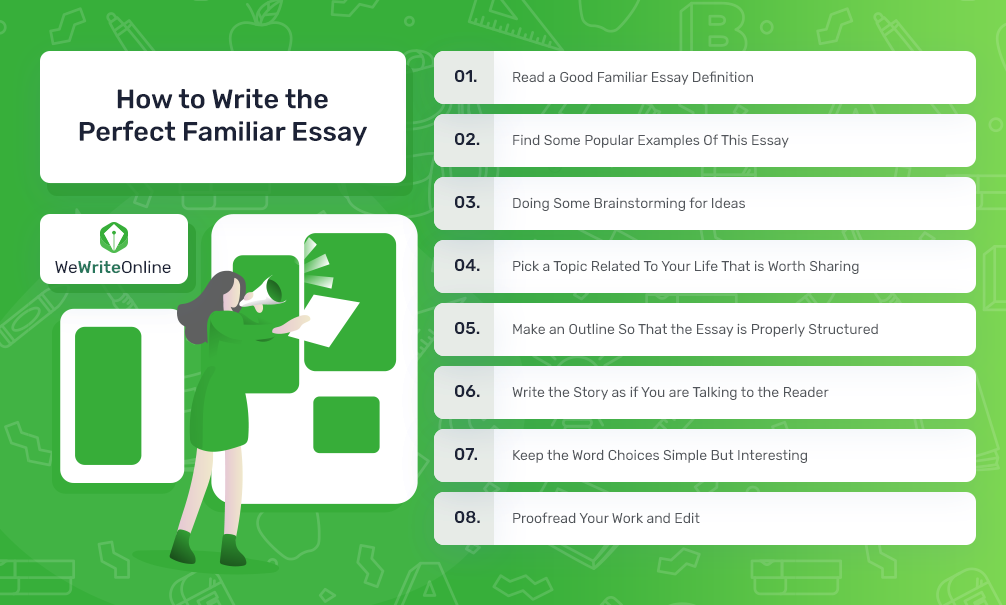
Audience and Tone of Writing
While writing a familiar essay, imagine that your audience is one person only. Your reader is educated enough to understand the topic and there is no need to prove additional clarifications or explanations. Think that your audience is enthusiastic to hear your opinion on the topic. You can even interact with the reader by using personal pronouns.
Make a Plan
Even if a familiar essay refers to personal writing, you still need to organize your ideas before writing. You can begin with freewriting and create a paper with all ideas that appear in your mind during several minutes. Do not worry about the content. You will extract the most valuable and significant ideas for your outline, which will further transform into a real essay.
Writing a Familiar Essay
Now it is time to use your outline and create the essay itself. Do not underestimate the importance of creating an outline and following it during the writing stage. Since familiar essays are deeply personal in their nature, students often go off the track and forget about the initial topics they tried to address. One of the easiest ways to write a familiar essay is to produce it at once (in one session). It will help you not to lose the focus.
Usage of Sources
Most of the teachers ask students not to use any references in familiar essays. However, please read carefully your instructions to be sure. If allowed, you can rely on the quote of a famous philosopher to prove your point. However, there is no need to introduce an outside argument because the focus of discussion should be your personal reflection.
Revise Your Paper
Always re-read your familiar essay before submission and revise its content. The reader should have a clear understanding of your personal standpoint. You should check the tone and style of writing. Be sure to get rid of all stylistic inconsistencies. For example, if you begin your essay with an enthusiastic tone, the same should be seen in the concluding paragraph. Check your paper for unity and coherence as well.
High Quality Academic Help

Although the familiar essay does not involve doing outside research or collecting data, it is nonetheless a difficult paper if you have trouble expressing your ideas in an entertaining way. Fortunately, when you are feeling stuck you can always buy a familiar essay from the experts at WeWriteOnline.com!
Buy Custom Essay Papers
Sometimes downloading an example of a familiar essay just will not cut it, especially when your own paper has to reflect on aspects of your life. This is why ordering a high quality custom familiar essay is the perfect solution. But where should you shop for paper? With so many writing services to choose from, it is not always easy to know which one is right for you. Here are a few traits that a reputable writing service should always possess:
- The company has developed a solid reputation for creating high quality content and has a high review score.
- The company does not merely send you the same familiar essay examples that they give to all their clients, they provide custom work that cannot be found anywhere else.
- The company understands the importance of keeping their prices low so that their services are accessible to all students.
- The company delivers their work by the deadline, even on the tightest of time frames.
When you look at the custom writing company websites, you will find that many of them are poorly written; containing grammar mistakes and typos. If they cannot even get their webpages right, how can they be expected to deliver an essay that gets you an A? Other websites look perfectly fine, but that also is not an automatic sign that they are reputable. Ultimately, it is important to choose the company carefully.
We at WeWriteOnline.com are the company that you can trust. Whether you need a familiar essay, movie review or even a dissertation, we have talented writers to handle all of your academic and professional needs. Every paper that we produce is original and follows your instructions to the letter. You are free to provide us some information about yourself that your writer will then craft into an entertaining, beautifully written familiar essay that keeps the reader’s attention. Alternatively, you can send us the general requirements of the assignment and we will use our creativity and imagination to do the rest! They will craft a purposeful, coherent story that leaves the audience feeling satisfied. Of course, the ultimate judge (your instructor) is sure to give it a high grade.
You never have to worry about plagiarism either. We scan all of our papers through the latest in plagiarism detection technology, guaranteeing one-of-a-kind work that you cannot find anywhere else. We also understand the importance of receiving your assignments on time. After all, receiving an amazing essay does you no good if your professor is not willing to accept it late.
Free Features
- Free revision (within 2 days)
- Free title page
- Free bibliography
- Free outline (on request)
- Free email delivery
- Free formatting
We Guarantee
- Quality research and writing
- BA, MA and PhD degree writers
- 100% confidentiality
- No hidden charges
- Never resold works
- 100% authenticity
- 24/7/365 Customer Support
Paper Format
- 12pt. Times New Roman
- Double/Single -spaced papers
- 1inch margins
- Any citation style
- Fully referenced papers
- Up-to-date sources
So when you are looking for the best familiar essay that meets all of your needs and boosts your grades, there is only one place to turn: WeWriteOnline.com. Our services are affordable and always delivered by the due date. So make the right decision and place your order today!

Place the first order and Get 15% Discount!
Feautured Posts

More from our blog
Our last posts.

Top Tips for Writing Chapters for a Thesis or Dissertation
In the process of writing dissertation chapters, it is essential that one clearly understands the fundamental principles of dissertation writing.
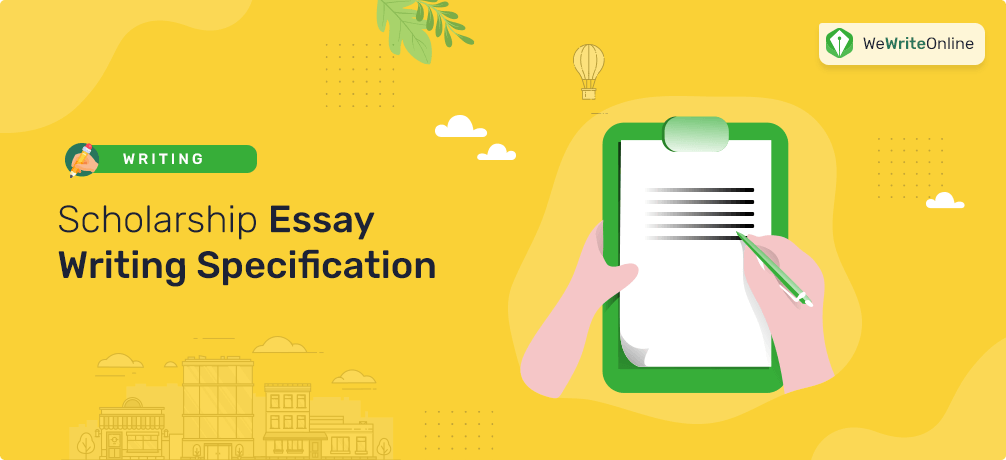
Detailed Report on a Scholarship Essay Writing
One should know that writing a superior scholarship essay requires considerable skills and efforts. If to take all papers that have ever won scholarships, it will be hard to define the specific feature that combines all of them.

First-Rate Informal Essay
A lot of people write diaries and keep a record of all the events that happen in their lives. In addition, many of us write different blogs as the social networking industry grows rapidly and such kind of activity becomes very popular.
Usually secondary and high school students know nothing about familiar essays because it is considered as a challenging assignment.

How to Write a Marvelous Explanatory Essay
An explanatory essay, otherwise known as an expository essay, aims to suggest a certain viewpoint concerning some event, situation, policy, issue, etc.

Tips on How to Write an Analytical Essay
The structure of an analytic essay is as follows: An introductory paragraph Some main body paragraphs A concluding paragraph The Introductory Paragraph An introductory paragraph should be eye-catching and compelling.

Response Paper Writing Made Easier
In most cases, when you are working on a personal paper, you are expected to read a book, review an article, or watch a movie.
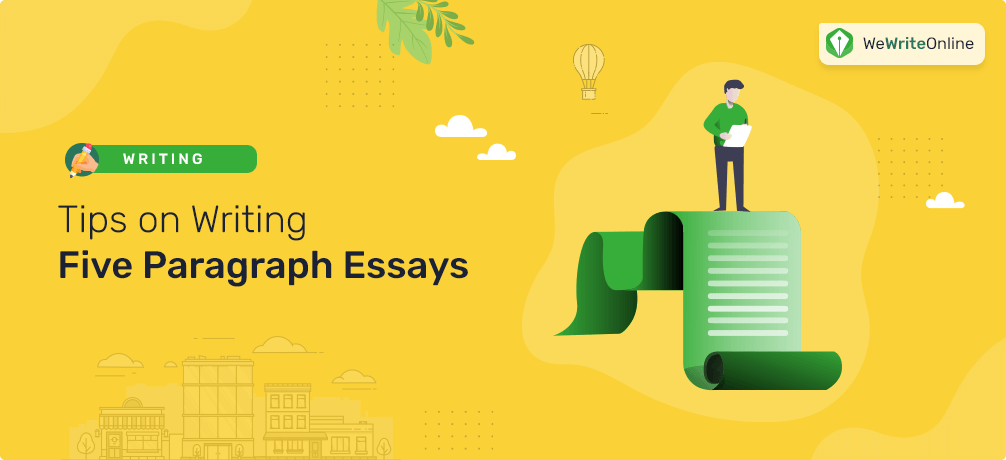
Five Paragraph Essay Help from Renowned Academic Writers
Five Paragraph Essay Help Is Right Here for You Many students find Google to be something magical – you just type into the search field some inquiry and get a plethora of results.

Evaluative Essay Writing
Defining an Evaluative Essay This is one of the types of essays aimed at revealing students’ analytical skills.

Useful Tips on Writing Drafts
What are drafts? It can be convenient to think there are two main stages to any writing task i.e. the first or initial draft and the end product.

How to Write a Dialectic Essay
What Is an Impressive Dialectic Essay? When preparing your dialectic essay, you will be required to explore a controversial issue.
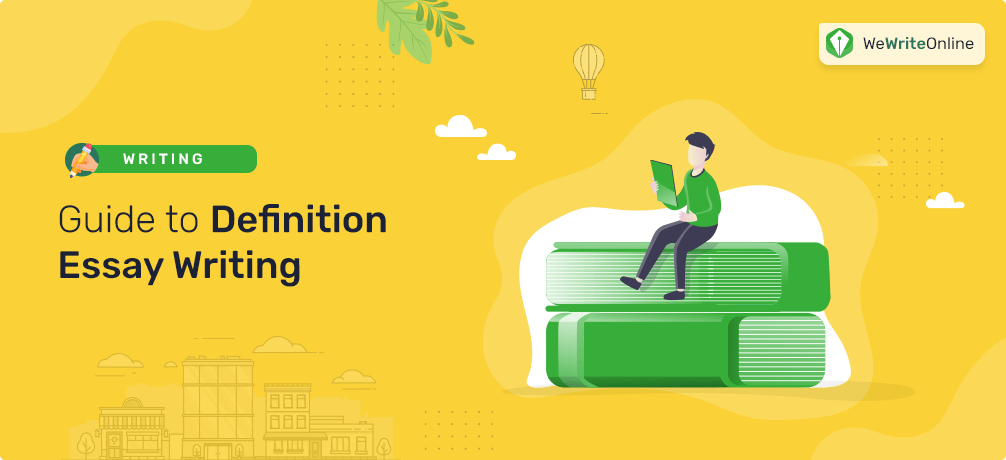
Guide to Definition Essay Writing
The process of writing a definition essay is more intricate than merely providing the dictionary definition of a term or word.

ESSAY SAUCE
FOR STUDENTS : ALL THE INGREDIENTS OF A GOOD ESSAY
Guide: How to write a familiar essay
Guide details:.
- Subject area(s): Types of essay
- Reading time: 4 minutes
- Price: Free download
- Published: 6 December 2019*
- Last Modified: 25 July 2024
- File format: Text
- Words: 1,059 (approx)
- Number of pages: 5 (approx)
- Tags: Guides

Text preview of this guide:
This page of the guide has 1,059 words. Download the full version above.
The familiar essay is a type of essay that has fallen by the wayside in most primary and secondary school curricula because it is difficult to write. The familiar essay is a personal reflection on an elevated topic, such as “people worth knowing,” or “How religion informs morality.” It is similar to a personal essay because the observations are unique to the author and research is not required. However, the familiar essay diverges from the personal essay because of the philosophical nature of the topics.
Tone and Audience
The author of a familiar essay writes as if they have an audience consisting of one person. They may even interact with their audience by using “you” or phrases such as “dear reader.” This conversational tone helps to create a sense of intimacy and direct engagement with the reader. Because of the lofty nature of the topics for a familiar essay, the tone for this type of essay is typically elevated and geared toward an educated reader. This means that the language used should be sophisticated and the ideas presented should be well thought out and intellectually stimulating.
Planning the Essay
Even though the familiar essay is personal in nature, it is important to gather your thoughts before you begin writing. Many professors and instructors recommend freewriting about the topic or clustering as useful activities for planning a familiar essay. Freewriting involves writing continuously about a topic for a set period without worrying about grammar or structure, allowing ideas to flow freely. Clustering, or mind mapping, involves writing the main idea in the center of a page and drawing lines to related ideas, creating a visual representation of the essay’s structure.
From the freewriting or clustering activity, the author can then create an outline to use as a general guide for organizing the essay. This outline should include the main points to be covered in the essay and the order in which they will be presented. Having a clear plan will help to ensure that the essay remains focused and coherent.
Writing the Familiar Essay
As you write, use the outline you created during the planning phase. Working from an outline is important for any essay that is personal in nature because writers have the greatest tendency to ramble or get off topic when they are writing about their observations. The outline serves as a roadmap, keeping the writer on track and ensuring that all the important points are covered.
Many authors find that writing the familiar essay is easiest if it is written in one session. This helps the writer to stay on track and prevents them from losing their focus. Writing in one session allows the author to maintain a consistent tone and flow throughout the essay. If interruptions are unavoidable, it may be helpful to re-read what has been written before continuing, to regain the original train of thought and maintain coherence.
Crafting the Content
In writing a familiar essay, it is essential to balance personal reflection with philosophical insight. The author should delve deeply into their own thoughts and experiences, while also considering broader implications and connections to universal themes. This requires a delicate interplay between the personal and the abstract.
For example, in an essay about “How religion informs morality,” the writer might start with a personal anecdote about a moment when their moral beliefs were challenged. From there, they could explore how religious teachings have shaped their understanding of right and wrong, weaving in philosophical reflections on the nature of morality and ethics.
Most familiar essays do not cite other essays or use references. However, you might make an exception to this rule by discussing a famous author, philosopher, or politician’s point to illuminate your point or to serve as a counterpoint to your assertions. In that instance, you would need to cite the reference.
For instance, if you are writing about “people worth knowing,” you might refer to the writings of Ralph Waldo Emerson to support your views on individuality and greatness. Using such references can add depth and credibility to your essay, showing that your personal reflections are informed by broader intellectual traditions.
Revising the Essay
Like other types of essays, the familiar essay should be carefully revised before it is turned in. Revising is not just about correcting grammatical errors, but also about refining the content and structure of the essay. Pay close attention to the tone of the essay. The tone should remain consistent. For example, if you began the essay with a light-hearted tone, make sure to continue that tone to the end of the essay for consistency. The exception would be if you have good reason to dampen the tone of the essay.
During revision, consider the following questions:
- Clarity and Coherence: Are your ideas clearly expressed and logically organized? Does each paragraph flow smoothly into the next?
- Engagement: Does your writing engage the reader and invite them to reflect on the topic? Have you maintained a conversational tone that addresses the reader directly?
- Depth: Have you delved deeply enough into your topic, providing thoughtful reflections and insights? Have you balanced personal anecdotes with philosophical musings?
- Consistency: Is the tone consistent throughout the essay? If there is a shift in tone, is it justified by the content?
Revising may require multiple drafts. It can be helpful to take breaks between revisions to gain fresh perspective. Reading the essay aloud can also highlight awkward phrasing or unclear passages.
Finalizing the Essay
Once you are satisfied with the revisions, it’s time to finalize the essay. Ensure that all citations are correctly formatted, if you have included any references. Double-check for any remaining grammatical or typographical errors. Formatting should adhere to any specific guidelines provided by your instructor or publication.
The familiar essay is a unique form of writing that combines personal reflection with philosophical insight. Although it is challenging to write, it offers a rewarding opportunity to explore elevated topics in a personal and engaging way. By carefully planning, writing, and revising your essay, you can create a piece that is both intellectually stimulating and deeply personal. Whether you are reflecting on the nature of morality, the qualities of people worth knowing, or any other profound topic, the familiar essay allows you to share your unique perspective with an audience in a thoughtful and meaningful manner.
...(download the rest of the guide above)
Discover more:
Recommended for you.
- How to write a persuasive essay
- How to write a discursive essay
- Table of contents in Word 2010
About this guide:
This is a free guide to help you with your studies.
Essay Categories:
- Accounting essays
- Architecture essays
- Business essays
- Computer science essays
- Criminology essays
- Economics essays
- Education essays
- Engineering essays
- English language essays
- Environmental studies essays
- Essay examples
- Finance essays
- Geography essays
- Health essays
- History essays
- Hospitality and tourism essays
- Human rights essays
- Information technology essays
- International relations
- Leadership essays
- Linguistics essays
- Literature essays
- Management essays
- Marketing essays
- Mathematics essays
- Media essays
- Medicine essays
- Military essays
- Miscellaneous essays
- Music Essays
- Nursing essays
- Philosophy essays
- Photography and arts essays
- Politics essays
- Project management essays
- Psychology essays
- Religious studies and theology essays
- Sample essays
- Science essays
- Social work essays
- Sociology essays
- Sports essays
- Types of essay
- Zoology essays
Familiar Essay Writing: 10 Tips That Will Make Your Work Easier

- How to structure it?
- What should you write about?
- What writing style should you settle on?
If you have to write a familiar essay, and these or other questions are whirling around in your brain, you have come to the right place. Yes, in this article, you will find all the tips to write a high-quality familiar essay on any topic.
Table of Contents
1. Get a Familiar Essay Example to Get You Started
A familiar essay is a very peculiar genre of the creative writing with some characteristics that are not shared by any other essay type. To simplify a bit, it is a short-form nonfiction text primarily characterized by a strong personal touch, a voice of the author’s persona. Normally, no matter what you write about – be it a book you’ve read, the current state of education industry or environmental protection, you are expected to be fully objective and avoid emotionally colored words (and anything else showing your subjectivity). In an informal essay, you don’t have these limitations – if you need to be emotional to demonstrate your unique take on the problem, so be it. In fact, the more personal your style is, the better it is for you – you can be as witty, funny, and quirky as you like.
To better understand what is expected of you, it would be a good idea to read a few examples of familiar essays. This can be quite informative and will give you the better understanding of how you can go about developing your own writing style – the most important prerequisite of a quality familiar essay. Be careful about the place where you get your writing sample – you cannot just visit any online writing service and say “ Write my familiar essay ” – specialists in this kind of work are relatively rare and are not easy to come by.
2. Look at Familiar Essay Topics That Are Acceptable
Another feature of writing familiar essays is the kind of topics that are covered in them. They should not require any professional or specialized knowledge and have universal human appeal – in other words, they should be understandable and relatable for anybody who would read them simply because they are just as human as the essay’s author. Such topics, for example, include:
- Books Getting Replaced with Digital Sources of Information and What It Means for Every One of Us;
- Community-Conscious Business: Is It Possible in Current Economic Climate?
- Is Writing a Doctoral or MBA Dissertation to Obtain a PhD Degree Worth the Trouble One Has to Go for Its Sake?
- Does History Repeat Itself and Is It a Good Enough Reason to Study It?
- War on Drugs and Its Connection to Teenage Crime Rates;
- Security Concerns vs. the Rights of Individuals in the UK;
- The Most Important Traits Associated with True Leadership.
As you can see, familiar essays can be written about virtually anything – you simply have to avoid topics that require specialized technical knowledge. When choosing what to write about, ask yourself: can it be understood by a person who does not study this subject but has background knowledge of an intelligent, generally well-educated amateur?
3. Use a Proper Familiar Essay Structure
- The hook – the first sentence or two, aimed at grabbing the reader’s attention and smoothly transferring it to the rest of the paper. It plays a special role in a familiar essay because of its high degree of informality – meaning that you have much more freedom of expression than usual. Let your wit roam free and don’t worry about going out of line – it is a part of the course when it comes to informal essays;
- The thesis statement. Nothing special about this – it is no different from what it is in any other type of essay, i.e., an explanatory sentence containing the gist of your entire paper in a definite and clear form.
The introduction is followed by body paragraphs and, again, you are free to organize them in any way you like. It is, however, a good idea to follow the usual rules: don’t exceed a limit of one point per paragraph, have logical connections between paragraphs, support your words with viable evidence. However, the familiar essay is a definition of a freeform assignment, so don’t be afraid to make experiments. Introduce a list or two, use narrative elements – in other words, do everything you need to get your point across, without being restricted by any particular format.
4. Talk to Your Reader While Writing a Familiar Essay
A familiar essay, the way it evolved in English literature, is a very personal experience, not just a piece of writing but an informal chat between two people: the writer and the reader. By a reader, we mean not just the grader responsible for reading and evaluating your work, but anybody whom this text will come to hand. So, be personal, address directly to the individual reading your paper, be friendly and don’t try to show yourself as superior to your audience. Demonstrate that your essay is a labour of love, not of pride. Usually familiar essays are written in a way that presupposes the audience of a single reader, which further emphasizes the personal nature of this genre.
5. Use the Simple Language, but Don’t Oversimplify
Your writing should be closer to the everyday speech than in the formal types of essays. But don’t treat this genre’s informality as an excuse to use slang, jargon or rude language. If it is of any help, imagine yourself writing a letter to a good yet somewhat distant friend. Think of how you would report about the latest happenings in your life in such a situation. Then, start writing.
6. Try Freewriting as a Good Method of Preparation
Although familiar essay writing is personal and informal in nature, it doesn’t mean that you should approach working on it haphazardly. Just like with any other kind of writing, it is extremely important to gather your thoughts before you start typing. However, in this case, you may give yourself a certain amount of freedom and start not with a rigid academic plan that looks almost like a thesis proposal, but with freewriting on the general topic you are dealing with.

7. Prepare an Essay Outline
It is especially important if you have to do some research being not very familiar with the essay topic. Having a clear-cut outline before you start working on an essay prevents you from rambling and omitting important points you have intended to mention. Some students resent the idea of writing an informal essay from an outline, but in fact, this stage is even more important in this type of writing than it is for other, more formal essays. The fact is that people are much more prone to steering off the course when they write about something personal in nature. Having a definite plan will help you keep your thoughts collected and cover everything you want but no more. Try it, it will save you a lot of time.
8. Try Finishing Your Work in One Session

9. Use of Some References in Your Familiar Essays
Most familiar essays do without any references at all – they are personal discussions on specific topics, not research assignments. However, you may have been given a task to introduce a certain amount of references in your assignment. Or you can make your own decision to discuss a famous author, and in this case, it will be impossible to avoid using quotations.
10. Don’t Forget to Revise and Proofread
Just like with any other type of academic writing, revising and proofreading are extremely important when it comes to familiar essays. However, in addition to the usual things – checking up on formatting, spelling, grammar, and syntax – here you should pay special attention to the tone of your writing.
- It shouldn’t be overly dry and academic. Think of the way you would talk about a good acquaintance of yours – eliminate overly complex words and structures, divide longer sentences into shorter ones and so on;
- It should be consistent. If you begin writing in a light-hearted tone, keep it this way throughout the whole essay – that is, unless you have a very good reason to change the way you speak and a way to demonstrate that you do it intentionally and not as a slip.
- Give your essay the right emotional vibe. Use informal, sometimes emotional language – the way you would discuss the topic with a living human being, not an abstract audience. At the same time, make sure you are respectful both towards your reader and viewpoints you discuss.
If possible, get an external proofreader – somebody you can trust, somebody who is interested in your success. Ask him/her to give you some feedback on the following aspects of your writing:
- Logic. Are all points connected to each other in a logical and consistent manner?
- Style. Is your style consistent throughout the essay? Are there any words or expressions that seem to be out of place?
- Grammar and syntax. Are there any glaring mistakes you’ve missed during your revision?
Familiar essays are rarely written by college students these days and are considered to be a difficult task. That’s why if you experience difficulties, there is nothing unusual about it – but we hope that these tips will get you through!

Too busy to write your paper by yourself?
- Summer Reading
- Quarter 1 Syllabus
- Quarter 2 Syllabus
- Quarter 3 Syllabus
- Quarter 4 Syllabus
Familiar Essay
Nonfiction: The Familiar Essay
The discovery of the essay…
Sir Francis Bacon is generally credited with introducing and popularizing the essay in the English-speaking world. Influenced by the French essays of Michel de Montaigne, who first used the term “essais” (or “attempts”) to describe his prose reflections on commonplace topics and occurrences, Bacon published Essays, Religious Meditations, Places of Persuasion and Dissuasion in 1597.
Understanding the familiar essay…
A familiar essay can be easily described as a merging of the expository essay and the true narrative essay. The familiar essay is written by the first person but does not tell a story based on plot like the true narrative. The writer of the familiar essay has an interest, if not passion, in her subject.
“Probably not. In short, familiar essays are somewhere between the personal and the critical essay. According to Anne Fadiman, in an interview from All Things Considered , the familiar essay is “autobiographical, but also about the world”. She also says, in an interview on p owells.com , that “one of its hallmarks of that it is about the author, so it is a subset of the personal essay, but it is also about a subject”.
In the nineteenth century familiar essays were at their height of popularity as a culture of interested readers found the familiar essay entertaining and interesting. With the advancement of society and the reliance on television and computer, the familiar essay has lost its status as a source of entertainment.
“However, it was in the 19th century – a period of material well-being in England , when there was a leisure class who enjoyed literature, when an education was received by many among the masses – that the familiar essay fully came into its own. The familiar essayist, as Sister Mary Eleanore wrote (1923), ‘is a veritable Jaques upon a mossy bank, who, while he watches the world go jostling its way down the river of life, extracts from its seemingly confused and meaningless tumbling bits of loving wisdom and quaint chuckles of fun . . .” He soothes the pains of the world’s tired travel, and does so through his ability to be whimsical, grave, melancholy, through his love of living and sense of humor over “those ridiculous and pathetic incongruities which are such a necessary part of life.’”
The familiar essay reached its zenith with Charles Lamb . Though living a melancholy and often tragic life, Lamb created in his essays a narrator “in love with this green earth,” – Dan Roche
Anne Fadiman revives the Familiar Essay…
I’ll admit that initially I was a bit thrown by the phrase “familiar essays” on the front of this book. I thought that maybe this was a collection of commonly told fables or something akin to that. I didn’t realize that the familiar essay is a type of essay. In my defense, they are not as common as they used to be. However, I would imagine that I have read some and didn’t even know it. Historically, these essays often had titles like “On Boating” or “On Politics Being a Masculine Arena.” They were meant to be informative, while at the same time highlighting pertinent personal experiences of the author.
Fadiman explains her devotion to the familiar form in the book’s lovely Preface: “Today’s readers encounter plenty of critical essays (more brain than heart) and plenty of personal – very personal – essays (more heart than brain), but not many familiar essays (equal measures of both).”
A typical Fadiman essay begins with an engaging personal anecdote before branching out into the history of the subject in question. As her extensive bibliography indicates, research aplenty goes into each piece. But it’s all so delightful, it’s like eating a meal that is both good for you and delicious.
How to write the familiar essay… I could just soon attempt to explain for you how to fly a kite, but begin with inspiration which serves as the wind of your discussion.
The Introduction : There is not prescribed set form for the familiar essay, although to begin with an engaging personal anecdote, which serves to introduce the point of your discussion, is effective. The writer will always benefit from providing an analogy or example to emphasize the opening anecdote. Like the expository essay, the introduction should conclude with a unifying statement that reveals the thesis statement. The language of the thesis does not have to be mechanical and straightforward, however, the declaring account should embrace the spirit of the discussion which follows in the body and conclusion.
The Body: Each body paragraph should begin with a topic sentence, what follows is a combination of opinionated observations supported with facts, testimony or examples/analogies. The transition statement is often used instead of the conclusive statement in an expository essay because the familiar essay is a blend of personality and formality.
The Conclusion: Restate your thesis or the spirit of your thesis. From here, you benefit by fulfilling the point of your discussion—another analogy or excerpt from your tale, that serves to culminate your discussion is appropriate. Conclude with the lesson of life declaration of your essay.
Definition and Recommendations on Writing a Familiar Essay
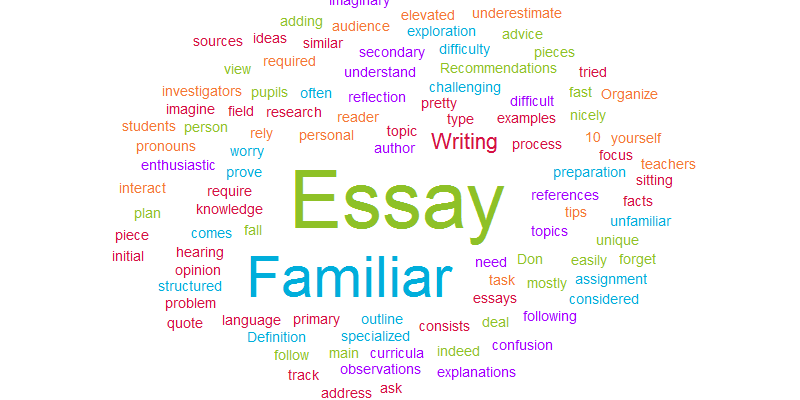
The familiar essay is mostly given as home task in primary and secondary school curricula. This type of essay is indeed difficult to write. If you have to deal with a familiar essay, writing a personal reflection on a certain topic will be your main task. Another difficulty in the way of writing this essay is the following: you can easily fall into confusion, because the familiar essay in pretty similar to the personal essay. The observations are unique to the author and research is not required. This challenging assignment is often unfamiliar to the pupils. It is considered as a pretty hard and challenging writing because you have to focus on your own reflection and exploration of a topic. There is no way in which you can rely on facts and other investigators in this field. Don’t worry though, you can write it with our help. Say to yourself: «I can write my essay nicely and fast! »
Here are some pieces of advice that will make your essay look more elevated:
- When writing your essay, imagine that your audience consists of only one person. Your reader is enthusiastic about hearing your opinion on the topic. In this type of essay, there is no need for adding different explanations in order to prove your point of view. You only need to interact with one imaginary reader. You can even try to use personal pronouns.
- Organize your ideas before writing by making a plan. Familiar or not, it is still a piece of writing that has to be well-structured.
- Do not underestimate an outline. it is an important part of essay writing. Make sure to follow it during the writing process. The problem is that students often go off the track and forget about the initial topics they tried to address. That is why it will be good to write your familiar essay in one sitting.
- In familiar essays, teachers will ask you not to use any references or sources. However, you can rely on one quote to prove your point.
10 tips for your familiar essay
We can assure you – the progress will be visible with these tips! Use them to create a nice familiar essay, better than your classmate’s.
– Read the examples of another familiar essay to understand the process. A familiar essay is a pretty peculiar genre of creative writing. Hence, some characteristics might be different than in any other essay type. It would be a good idea to read the few examples of familiar essays to better understand what is expected of you.
– The topic is very important. Topics should not require any professional or specialized knowledge. Try to make them understandable and relatable. Familiar essays can be written about anything – you just have to avoid the issues that require specialized technical knowledge. Make your essay familiar.
– You should use a proper familiar essay structure. Familiar essay is not extremely different from any other type of paper. Usually, an introduction comes first. It consists of the so-called hook (the first sentence or two, aimed at grabbing the reader’s attention) and the thesis statement.
– Remember to talk to your reader while writing a familiar essay. You can use simple language, but remember not to oversimplify. Slang, jargon or rude language will not be acceptable.
– Freewriting can help you, as it is a good method of preparation. Simply sit down, take a sheet of paper and write everything that comes to your head. Free your mind. Don’t worry if the quality of writing is low, you can later improve it.
– Essay outline preparation. If you have to do some research and aren’t very familiar with the essay topic – do the outline. Having a clear-cut prevents you from rambling and omitting important points you need to mention.
– References in your familiar essay. It is a good idea to add them. It will not be a mistake to show your own decision in order to discuss a famous author, and in this case, it will be impossible not to use some quotations.

On the Familiar Essay
Challenging Academic Orthodoxies
- © 2009
- G. Douglas Atkins
You can also search for this author in PubMed Google Scholar
622 Accesses
This is a preview of subscription content, log in via an institution to check access.
Access this book
Subscribe and save.
- Get 10 units per month
- Download Article/Chapter or eBook
- 1 Unit = 1 Article or 1 Chapter
- Cancel anytime
- Available as PDF
- Read on any device
- Instant download
- Own it forever
- Compact, lightweight edition
- Dispatched in 3 to 5 business days
- Free shipping worldwide - see info
- Durable hardcover edition
Tax calculation will be finalised at checkout
Other ways to access
Licence this eBook for your library
Institutional subscriptions
About this book
Similar content being viewed by others.

Hamsun, Knut: Essays zur Literatur
Tournier, michel: le vent paraclet.

Essays zur französischen Literatur
- Close reading
- participation
Table of contents (10 chapters)
Front matter, the observing self, or writing upon something: the character, art, and distinctiveness of the familiar essay, on time, the familiar, and the essay, envisioning the stranger’s heart, e.b. white and the poetics of participation, “the way life should be,” or the maine-ing of existence: e.b. white as familiar essayist, the limits of the familiar: e.b. white and t.s. eliot, toward a familiar literary criticism, of swords, ploughshares, and pens: the return of/to civility, against winning, and the art of peace, the essay in the academy: between “literature” and “creative writing”, essaying to be: higher education, the vocation of teaching, and the making of persons, back matter.
"In this timely revalorization of the form, Atkins shows the unexpected depths of the familiar essay. Far from being the lightweight pieces dismissed by their detractors as trivial, he shows how, at their best, such essays are exquisitely crafted intersections of time and timelessness. Their indirectness, individuality and warmth suggest a way of knowing that at once challenges and complements the clinical prose of conventional academic articles. Essayists, says Atkins, are endeavoring to write personally and artfully about the familiar and through it to approach the universal. His study calls for a meticulous reading of their work in order, ultimately, for the reader to learn from it how to make the most of the short time we have on earth." Quoting extensively from acknowledged masters of this neglected mode of writing, Atkins provocatively questions the adequacy of established educational procedures and champions a pedagogy informed by essayistic ideals." - Chris Arthur, author of Irish Nocturnes, Irish Willow, Irish Haiku and Irish Elegies
"In these pages, Atkins richly models the exploratory, revelatory pursuit that he calls the familiar essay. The essays he celebrates range outward from personal experience to impersonal, even cosmic concerns. They marry literature and philosophy, wisdom and wit. Through illuminating readings of figures as diverse as E. B. White and T. S. Eliot, Atkins confirms his position as the leading interpreter of this various and vitalmode of art." - Scott Russell Sanders, author of A Private History of Awe
"In these deeply felt and elegantly expressed thoughts about the essay, Atkins offers a moving account of the hard work of self examination in a difficult world. His book is also both an apologia for and a gentle critique of Atkins s own vocation to an academic life. But unlike Marxist or disciplinary commentaries on the profession, this essay invokes the much rarer language of spirituality - of value - to engage, disturb, and inspire its readers." - Patricia Harkin, Professor, English and Communication Studies, University of Illinois at Chicago
About the author
Bibliographic information.
Book Title : On the Familiar Essay
Book Subtitle : Challenging Academic Orthodoxies
Authors : G. Douglas Atkins
DOI : https://doi.org/10.1057/9780230101241
Publisher : Palgrave Macmillan New York
eBook Packages : Palgrave Literature & Performing Arts Collection , Literature, Cultural and Media Studies (R0)
Copyright Information : G. Douglas Atkins 2009
Hardcover ISBN : 978-0-230-62000-1 Published: 18 November 2009
Softcover ISBN : 978-1-349-38259-0 Published: 18 November 2009
eBook ISBN : 978-0-230-10124-1 Published: 26 October 2009
Edition Number : 1
Number of Pages : XIV, 204
Topics : Literary Theory , Social Sciences, general
- Publish with us
Policies and ethics
- Find a journal
- Track your research

- Britannica Homepage
- Ask the Editor
- Word of the Day
- Core Vocabulary
- Most Popular
- Browse the Dictionary
- My Saved Words
- familiar (adjective)
- a familiar joke/sight
- familiar surroundings
- The essay covers familiar ground/territory.
- It's a sad but (all too) familiar story.
- She has become a familiar figure in the world of politics.
- surroundings that are more familiar to us
- foods that are already familiar to most Americans
- He spotted a familiar face in the crowd.
- a familiar voice
- He looked familiar [=he looked like someone I had seen before] but I couldn't remember his name.
- Her name is/sounds/seems (vaguely) familiar .
- She spoke in a familiar way about her past.
- an essay written in a familiar style
- a familiar way of addressing someone
- They felt the waiter was being overly familiar .
- He avoids being overly/too familiar with his employees.
familiar with
- We are familiar with the situation. [=we know about the situation]
- I'm not very familiar with that area.
— familiarly
- The coach patted him familiarly on the back.
- Locals refer to the Maple Leaf restaurant familiarly [= informally ] as ‘The Leaf.’
| to stick out |
- About Us & Legal Info
- Partner Program
- Privacy Notice
- Terms of Use
- Pronunciation Symbols
- Share full article
Advertisement
Supported by
Do Robots Love Their Customers? Automated Restaurants Face Human Issues.
Technology promises cost savings, but it turns out the dining experience is all about feelings.

By Meghan McCarron
Reporting from Long Beach, Calif.
On a recent Thursday afternoon at a Denny’s in Long Beach, Calif., a four-foot-tall robot glided toward Diane Deconnick’s table. Its three tiered trays could have hauled a feast, but they were empty except for a bowl of soup and a fried chicken salad.
As the machine rolled to a stop, a scrolling digital display announced, “FOOD IS HERE.”
“It talks!” Ms. Deconnick said. A Denny’s regular, she had been curious about the robot since it appeared a few weeks earlier. This was her first time being served by it.
Or partly served by it. A waiter had followed the robot. He took the food off the tray and put it on the table. “What’s your name, robot?” Ms. Deconnick asked. “Lily,” the server answered. He’d named it himself.
Ms. Deconnick, who planned on tipping her usual 20 percent, said, “I like Lily. She’s a good worker.”
For a decade, the promised era of robo-flipped burgers and automated baristas has always been just around the corner . But automation in restaurants, at least in the United States, remains a novelty. That is not because the robots and A.I. assistants can’t hack it. By and large, the technology is there, and in some cases has been for years.
We are having trouble retrieving the article content.
Please enable JavaScript in your browser settings.
Thank you for your patience while we verify access. If you are in Reader mode please exit and log into your Times account, or subscribe for all of The Times.
Thank you for your patience while we verify access.
Already a subscriber? Log in .
Want all of The Times? Subscribe .
Definition and Examples of Formal Essays
Glossary of Grammatical and Rhetorical Terms
- An Introduction to Punctuation
- Ph.D., Rhetoric and English, University of Georgia
- M.A., Modern English and American Literature, University of Leicester
- B.A., English, State University of New York
In composition studies , a formal essay is a short, relatively impersonal composition in prose . Also known as an impersonal essay or a Baconian essay (after the writings of England's first major essayist , Francis Bacon ).
In contrast to the familiar or personal essay , the formal essay is typically used for the discussion of ideas. Its rhetorical purpose is generally to inform or persuade.
"The technique of the formal essay," says William Harmon, "is now practically identical with that of all factual or theoretical prose in which literary effect is secondary" ( A Handbook to Literature , 2011).
Examples and Observations
- "' Formal' essays were introduced in England by [Francis] Bacon , who adopted Montaigne's term. Here the style is objective, compressed, aphoristic , wholly serious. . . . In modern times, the formal essay has become more diversified in subject matter, style , and length until it is better known by such names as article , dissertation, or thesis, and factual presentation rather than style or literary effect has become the basic aim." (L. H. Hornstein, G. D. Percy, and C. S. Brown, The Reader's Companion to World Literature , 2nd ed. Signet, 2002)
- A Blurred Distinction Between Formal Essays and Informal Essays "Francis Bacon and his followers had a more impersonal, magisterial, law-giving, and didactic manner than the skeptical Montaigne. But they should not be viewed as opposites; the distinction between formal and informal essay can be overdone, and most great essayists have crossed the line frequently. The difference is one of degree. [William] Hazlitt was essentially a personal essayist , though he wrote theater and art criticism; Matthew Arnold and John Ruskin were essentially formal essayists , though they may have tried a personal essay once in a while. Personality creeps into the most impersonal of writers: it is difficult to read Bacon on friendship or having children , for instance, without suspecting he is talking about autobiographical matters. Dr. Johnson was probably more a moral essayist than a personal one, though his work has such an individual, idiosyncratic stamp that I have persuaded myself to place him in the personal camp. George Orwell seems split fifty-fifty, an essay hermaphrodite who always kept one eye on the subjective and one on the political. . . . "The Victorian era saw a turn toward the formal essay , the so-called essay of ideas written by [Thomas] Carlyle, Ruskin, [Matthew] Arnold, Macaulay, Pater. Between Lamb and Beerbohm there was scarcely an English personal essay, with the exception of those by Robert Louis Stevenson and Thomas De Quincey . . . ." (Phillip Lopate, Introduction to The Art of the Personal Essay . Anchor, 1994)
- Voice in the Impersonal Essay "[E]ven when 'I' plays no part in the language of an essay, a firm sense of personality can warm the voice of the impersonal essay narrator . When we read Dr. [Samuel] Johnson and Edmund Wilson and Lionel Trilling , for instance, we feel that we know them as fully developed characters in their own essays, regardless of their not referring personally to themselves." (Phillip Lopate, "Writing Personal Essays: On the Necessity of Turning Oneself Into a Character." Writing Creative Nonfiction , ed. by Carolyn Forché and Philip Gerard. Writer's Digest Books, 2001)
- Crafting the Impersonal "I" "Unlike the exploratory 'self' of Montaigne, Francis Bacon's impersonal 'I' appears already to have arrived. Even in the comparatively expansive third edition of the Essays , Bacon provides few explicit hints as to either the character of the textual voice or the role of the expected reader. . . . [T]he absence of a felt 'self' on the page is a deliberate rhetorical effect: the effort to efface voice in the 'impersonal' essay is a way of evoking a distant but authoritative persona . . . . In the formal essay , invisibility must be forged." (Richard Nordquist, "Voices of the Modern Essay." University of Georgia, 1991)
- Justification (Typesetting and Composition)
- Learn How to Use Extended Definitions in Essays and Speeches
- Periodical Essay Definition and Examples
- The Essay: History and Definition
- Vernacular (Language)
- Definition and Examples of Humorous Essays
- What Is a Critique in Composition?
- Definition Examples of Collage Essays
- What Is a Colloquialism?
- Oration (Classical Rhetoric)
- Word Class in English Grammar
- What Is a Natural Language?
- Writer's Notebook
- Eulogy Examples and Definition
- What Is Colloquial Style or Language?
- Formally and Formerly

IMAGES
COMMENTS
A familiar essay is a short prose composition (a type of creative nonfiction) characterized by the personal quality of the writing and the distinctive voice or persona of the essayist. Also known as an informal essay .
Definition of a Familiar Essay A familiar essay, as its name suggests, is a form of non-fiction writing that offers an intimate, conversational exploration of a topic. Unlike formal academic essays , where the goal is to make an objective, evidence-based argument, the familiar essay offers a comfortable space to meander through thoughts and ...
Make a Plan. Even if a familiar essay refers to personal writing, you still need to organize your ideas before writing. You can begin with freewriting and create a paper with all ideas that appear in your mind during several minutes. Do not worry about the content. You will extract the most valuable and significant ideas for your outline, which ...
Essays and criticism on The Familiar Essay - Elements Of Form And Style. Select an area of the website to search ... to define anything. An essay is a walk, an excursion, not a business trip. So ...
The familiar essay is characterized by its brevity and discursive style. As the genre gained critical acceptance, attempts to arrive at a more functional definition of the essay proliferated ...
The familiar essay is a type of essay that has fallen by the wayside in most primary and secondary school curricula because it is difficult to write. The familiar essay is a personal reflection on an elevated topic, such as "people worth knowing," or "How religion informs morality." It is similar to a personal essay because the ...
Familiar essays are usually associated with well-known writers such as G.K. Chesterton or George Orwell and not with college academic tasks. ... point per paragraph, have logical connections between paragraphs, support your words with viable evidence. However, the familiar essay is a definition of a freeform assignment, so don't be afraid to ...
A familiar essay can be easily described as a merging of the expository essay and the true narrative essay. The familiar essay is written by the first person but does not tell a story based on plot like the true narrative. The writer of the familiar essay has an interest, if not passion, in her subject. "Probably not.
In "Being Familiar" Sam Pickering joins the effort to describe the essay, suggesting that it is a product of both wander and wonder: "Scholarly writing and the familiar essay are very different.
Definition and Recommendations on Writing a Familiar Essay. Publication Date: 06 May 2019 | Categories: Blog The familiar essay is mostly given as home task in primary and secondary school curricula. This type of essay is indeed difficult to write. If you have to deal with a familiar essay, writing a personal reflection on a certain topic will be your main task.
The familiar essay allows us to see and appreciate, as I have sug-gested, the ordinary, and not just the ordinary but also the intersec-tion of the ordinary and the extra-ordinary, experience and meaning, time and timelessness. Confronting the faddish and merely fashion-able, and exposing them, the familiar essay does not flaunt its (badly
"[An essay is a] composition, usually in prose.., which may be of only a few hundred words (like Bacon's "Essays") or of book length (like Locke's "Essay Concerning Human Understanding") and which discusses, formally or informally, a topic or a variety of topics." (J.A. Cuddon, "Dictionary of Literary Terms". Basil, 1991) "Essays are how we speak to one another in print — caroming thoughts ...
Essays of Michel de Montaigne. An essay is, generally, a piece of writing that gives the author's own argument, but the definition is vague, overlapping with those of a letter, a paper, an article, a pamphlet, and a short story.Essays have been sub-classified as formal and informal: formal essays are characterized by "serious purpose, dignity, logical organization, length," whereas the ...
Informal essays can also be called personal or familiar essays. Frequently, informal essay examples are found in various types of writing like diary entries, social media, or blog posts.
This list of 250 "subjects for familiar essays" originally appeared as an appendix to Essays and Essay-Writing, an anthology edited by William M. Tanner and published by the Atlantic Monthly Press in 1917. But don't let the date scare you away.
Familiar Essay. THE OBJECT the familiar OF essay. THIS The qualifier DISCUSSION "familiar" IS is definitive, A DISTINCTLY and separates ROMANTIC PROSE GENRE, from the great critical and thematic writings of the romantic period, the. kind of prose essay categorized by its randomness and spontaneity. This is.
Instead, the familiar style is clear, plain, common English that is well-chosen, expressive, precise, and respectful. Second, the familiar style is not puffed up. It does not use big words only ...
The essay is a form with distinguished predecessors and a rich tradition, and within its generous boundaries one can do almost anything one wishes: report anecdotes, tell jokes, make literary ...
Glossary of Grammatical and Rhetorical Terms. A personal essay is a short work of autobiographical nonfiction characterized by a sense of intimacy and a conversational manner. Also called a personal statement . A type of creative nonfiction, the personal essay is "all over the map," according to Annie Dillard.
Britannica Dictionary definition of FAMILIAR. [more familiar; most familiar] 1. a : frequently seen, heard, or experienced. a familiar joke/sight. familiar surroundings. The essay covers familiar ground/territory. It's a sad but (all too) familiar story. She has become a familiar figure in the world of politics.
Mr. Goldenshteyn believes that all of the order-taking automation, including kiosks and A.I., will eventually be superseded by a familiar bit of hardware that consumers already have a strong ...
In composition studies, a formal essay is a short, relatively impersonal composition in prose. Also known as an impersonal essay or a Baconian essay (after the writings of England's first major essayist, Francis Bacon ). In contrast to the familiar or personal essay, the formal essay is typically used for the discussion of ideas.
By Way of Preface: An Essay upon Essays upon Essays. A Note on the Essay. The Cockneys: Hazlitt, Lamb, And Hunt. J. H. Lobban. III and IV. The Essay. The Essayist. The Familiar Essay and the ...